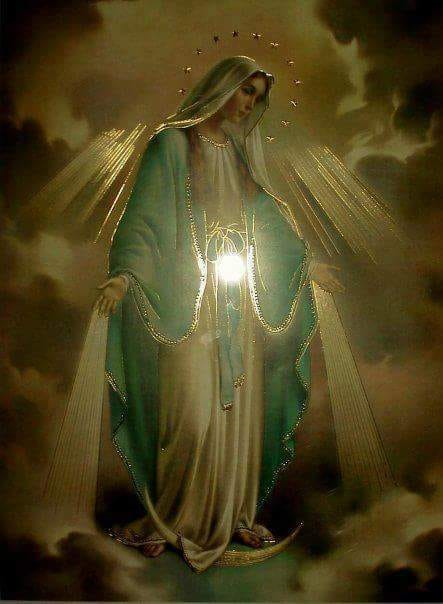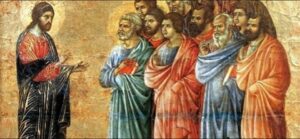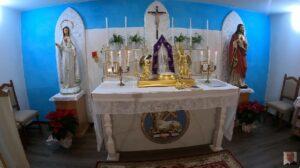
DALL’OMELIA DI DON ENRICO RONCAGLIA (*)
Sap 5:1-5.
I giusti terranno alta la testa dinanzi a coloro che li oppressero e rapirono le loro fatiche. E questi a tal vista saranno agitati da orribile spavento e resteranno sorpresi di così inaspettata e repentina salvezza.
Giovanni 14:1-13
In quel tempo Gesù disse ai suoi discepoli: «Non si turbi il vostro cuore. Credete in Dio ed anche in me. Nella casa di mio Padre ci son molte dimore. Se così non fosse ve l’avrei detto; infatti io vado a preparare un posto per voi. E quando sarò andato e vi avrò preparato il posto, verrò di nuovo a prendervi con me, affinché dove sono io siate anche voi! E del luogo, ove io vado, voi ben conoscete la via»
Oggi celebriamo la festa di due grandi apostoli, Filippo e Giacomo il minore (1,2).
Gesu’ dice oggi nel Vangelo: credete in me e compirete miracoli piu’ grandi dei miei!
Dopo la Pentecoste gli apostoli hanno portato la predicazione in tutto il mondo allora conosciuto. Questo e’ stato possibile grazie allo Spirito Santo mandato da Gesu’ Cristo sulla Chiesa.
Chi crede in me puo’ chiedere a Dio Padre, nel mio none, qualunque cosa e sara’ esaudito!
Si tratta di una grazia grandissima! Che possiamo ottenere perseverando nella fede e nella preghiera!
Sia lodato Gesu’ Cristo! Sempre sia lodato!
__________________
(*) Questo commento e’ scritto in tempo reale durante l’omelia. Mi scuso per l’eventuale misinterpretazione delle parole di Don Enrico.
(1) San FILIPPO, Apostolo (Palestina, I secolo d.C.)
FILIPPO è citato nei Vangeli di Matteo, Marco e Luca.
Giovanni lo presenta per la prima volta mentre fa il conto di quanto costerebbe sfamare la turba che è al seguito di Gesù (6,57). E, più tardi, quando accompagna da Gesù, dopo l’ingresso in Gerusalemme, alcuni “Greci” venuti per la Pasqua: quasi certamente “proseliti” dell’ebraismo, di origine pagana (12,21 ss.). Nell’ultima cena, Filippo è uno di quelli che rivolgono domande ansiose a Gesù. Gli dice: “Signore, mostraci il Padre e ci basta”, attirandosi dapprima un rilievo malinconico: “Da tanto tempo sono con voi, e tu non mi hai ancora conosciuto, Filippo?”. E poi arriva, a lui e a tutti, il pieno chiarimento: “Chi ha visto me, ha visto il Padre”.
(2) San GIACOMO IL MINORE, Apostolo (palestina, I secolo d.C.). GIACOMO, cugino di Gesu’,
figlio di Alfeo, è detto il Minore per distinguerlo da Giacomo figlio di Zebedeo (e fratello di Giovanni) detto il Maggiore e da secoli venerato come Santiago a Compostela. Da Luca sappiamo che Gesù sceglie tra i suoi seguaci dodici uomini “ai quali diede il nome di apostoli” (6,14), e tra essi c’è appunto Giacomo di Alfeo, il Minore. Nella Prima lettera ai Corinzi, Paolo dice che Gesù, dopo la risurrezione “apparve a Giacomo e quindi a tutti gli apostoli”.
FROM THE HOMILY BY DON ENRICO RONCAGLIA (**)
Wis 5: 1-5. The righteous will hold their heads high in the face of those who oppressed them and stole their labors. And these at this sight will be agitated by horrible fright and will be surprised by so unexpected and sudden salvation.
John 14: 1-13 At that time Jesus said to his disciples: «Do not let your hearts be troubled. Believe in God and also in me. In my Father’s house there are many mansions. If not, I would have told you; in fact I’m going to prepare a place for you. And when I am gone and I have prepared the place for you, I will come again to take you with me, so that where I am you too! And of the place, where I go, you know the way well ”
Today we celebrate the feast of two great apostles, Philip and James the less (1,2).
Jesus says today in the Gospel: believe in me and you will perform miracles greater than mine!
After Pentecost the apostles took the preaching to all the then known world. This was possible thanks to the Holy Spirit sent by Jesus Christ to the Church.
Whoever believes in me can ask God the Father, in my ninth, for anything and it will be heard! It is a very great grace!
Which we can achieve by persevering in faith and prayer!
Praised be Jesus Christ. Always be praised!
___________________
(**) This comment is written in real time during the homily. I apologize for any misinterpretation of Don Enrico’s words
(1) Saint PHILIP, Apostle (Palestine, 1st century AD) PHILIP is mentioned in the Gospels of Matthew, Mark and Luke. John introduces him for the first time while calculating how much it would cost to feed the crowd that follows Jesus (6:57). And, later, when he accompanies Jesus, after entering Jerusalem, some “Greeks” who had come for Easter: almost certainly “proselytes” of Judaism, of pagan origin (12:21 ff.). At the Last Supper, Philip is one of those who ask Jesus anxious questions. He says to him: “Lord, show us the Father and that’s enough for us”, at first drawing a melancholy relief: “For a long time I have been with you, and you have not still known, Filippo? “. And then comes, to him and to everyone, the full clarification: “Whoever has seen me has seen the Father”.
(2) St. James the Less, Apostle (Palestine, 1st century AD). JAMES, cousin of Jesus, son of Alfeo, he is called the Minor to distinguish him from James son of Zebedee (and brother of John) called the Major and for centuries venerated as Santiago a Compostela. From Luke we know that Jesus chooses twelve men from among his followers “to whom he gave the name of apostles” (6:14), and among them there is precisely James of Alphaeus, the Lesser. In the First Letter to the Corinthians, Paul says that Jesus, after the resurrection “appeared to James and therefore to all the apostles”.

